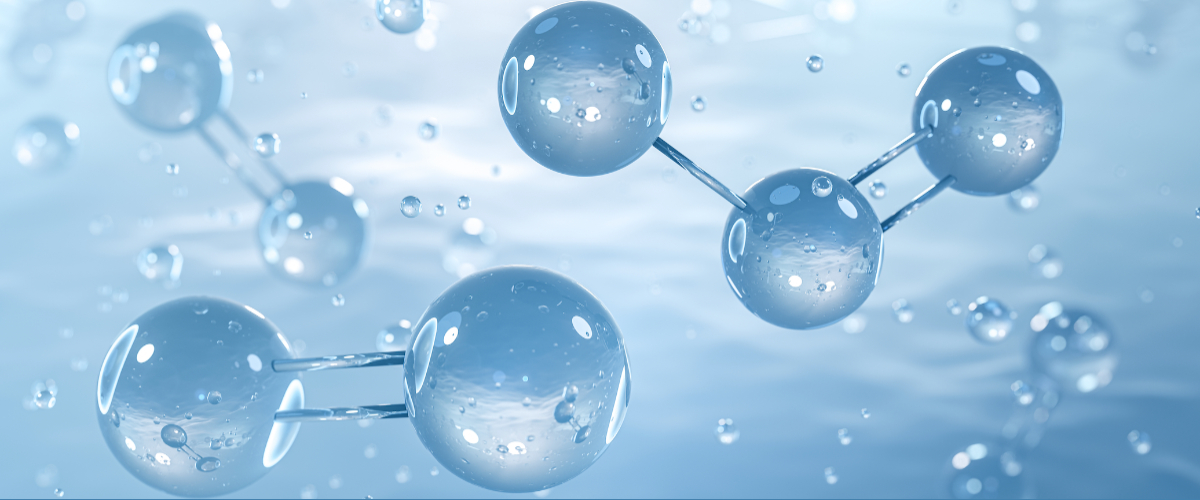How to Choose the Right Boiler Chemicals for Your Industry
Published on by Taknik Inc, Engineering Consultancy Services at Taknik Inc in Business
Boiler chemicals are essential for maintaining and operating industrial boilers, which are widely used to generate steam or hot water for various processes. Boilers are found in many industries, including power generation, chemical manufacturing, food processing, and water treatment. However, to operate efficiently and safely, boilers need to be treated with specific chemicals. These "boiler chemicals" prevent issues like corrosion, scaling, and foaming, which can impair boiler performance and even cause failures.
This article explores the role of boiler chemicals, their types, benefits, applications, and safety considerations, offering a comprehensive understanding of why these chemicals are crucial in industrial settings.

What Are Boiler Chemicals?
Boiler chemicals are specialized chemical agents designed to address the challenges that industrial boilers face. When water is heated and turned into steam, impurities in the water can cause problems that lower efficiency and damage the boiler over time. Boiler chemicals help control these issues by treating the feedwater (the water entering the boiler), the boiler itself, and the steam condensate (the steam that has condensed back into liquid water).
There are various types of boiler chemicals, each with its own specific purpose. The most common include oxygen scavengers, scale inhibitors, corrosion inhibitors, alkalinity boosters, and antifoaming agents.
Why Are Boiler Chemicals Important?
Boilers are a significant investment, and when they aren't maintained properly, their efficiency and lifespan can decrease. Using boiler chemicals allows companies to:
1. Prevent Corrosion : Corrosion in boilers can weaken metal surfaces and lead to leaks. Oxygen in the water is a major contributor to corrosion, so chemicals like oxygen scavengers are used to reduce the amount of dissolved oxygen.
2. Control Scale Formation: Scale is a hard, mineral-based buildup that forms on the surfaces of the boiler. Scale reduces heat transfer efficiency and can cause overheating. Scale inhibitors or dispersants are added to prevent mineral deposits from accumulating on boiler surfaces.
3 . Maintain Alkalinity and pH Levels : Proper pH and alkalinity levels are essential to protect the boiler’s metal surfaces from acidic corrosion and to improve the performance of other treatment chemicals.
4. Improve Efficiency : By preventing scaling, corrosion, and foaming, boiler chemicals help maintain optimal boiler efficiency, saving on fuel costs and reducing operational expenses.
5. Ensure Safety: Boilers that are not properly treated with chemicals are at a higher risk of breakdown, which can lead to dangerous situations. Chemical treatment improves safety by preventing boiler malfunction and potential failure.
Types of Boiler Chemicals
Each type of boiler chemical serves a specific function to address different boiler issues. Here’s a closer look at some of the most common types:

1. Oxygen Scavengers
Oxygen scavengers remove dissolved oxygen from the boiler water, reducing the risk of corrosion. Oxygen can react with metal surfaces, causing corrosion and pitting. Chemicals like sodium sulfite and hydrazine are used as oxygen scavengers, though alternative, environmentally safer chemicals are also available.
2. Scale Inhibitors
Scale inhibitors, or anti-scalants, prevent the buildup of minerals (primarily calcium and magnesium) that lead to scale formation. Scale inhibitors help prevent these minerals from precipitating on boiler surfaces, maintaining heat transfer efficiency.
3. Corrosion Inhibitors
Corrosion inhibitors are used to protect boiler surfaces from acidic or other types of corrosion. These chemicals form a protective film on metal surfaces, reducing the likelihood of metal breakdown. Examples include phosphate-based inhibitors and filming amines.
4. Alkalinity Boosters
Alkalinity boosters, such as sodium hydroxide, help maintain a suitable pH level within the boiler water. Alkaline conditions in the boiler water reduce the potential for acidic corrosion and improve the effectiveness of other treatment chemicals.
5. Antifoaming Agents
Foaming in the boiler can cause water to carry over into the steam, leading to operational issues. Antifoaming agents, or defoamers, reduce surface tension, minimizing the formation of bubbles and preventing water carryover.
6. Condensate Treatment Chemicals
Condensate treatment chemicals are added to protect steam lines from corrosion. Amine-based treatments are common, helping to neutralize acidity and prevent corrosion in the condensate return system.
Application of Boiler Chemicals
Boiler chemicals are typically introduced at several points in the boiler system:
Feedwater Treatment : Treatment begins with the feedwater, which is treated to remove impurities and control pH before it enters the boiler. Proper feedwater treatment reduces the chances of corrosion and scale
Internal Boiler Treatment : Some chemicals, like oxygen scavengers and scale inhibitors, are added directly into the boiler to address specific issues like dissolved oxygen and scaling.
Condensate Treatment: Steam condensate is treated to prevent corrosion in the return lines and maintain the quality of the water that returns to the boiler.
Benefits of Boiler Chemical Treatment
1. Prolongs Boiler Lifespan : Effective chemical treatment protects boilers from damage, extending their operational life.
2. Increases Efficienc y : Preventing scaling and corrosion ensures efficient heat transfer, reducing energy costs.
3. Reduces Maintenance Costs : Regular chemical treatment minimizes the need for costly repairs and maintenance, as the boiler operates more smoothly without major issues.
4. Improves Safety : A well-maintained boiler is less likely to encounter dangerous failures, protecting workers and the facility.
5. Helps Meet Environmental Standards: Some boiler chemicals help control emissions, aligning with environmental regulations and reducing environmental impact.
Safety Considerations
Boiler chemicals, though beneficial, require careful handling due to their potentially hazardous nature. Workers handling boiler chemicals should follow proper safety procedures, such as:
Using Personal Protective Equipment (PPE): PPE like gloves, goggles, and masks are essential when handling chemicals to protect against accidental spills or exposure.
Following Manufacturer Guidelines : Each chemical should be used as specified by the manufacturer, as incorrect usage can lead to ineffective treatment or dangerous situations.
Proper Storage : Boiler chemicals should be stored in a well-ventilated area, away from heat sources and incompatible substances, to prevent reactions or degradation.
Regular Monitoring : Boiler water chemistry should be monitored frequently to ensure chemicals are dosed accurately, maintaining optimal conditions in the boiler.

Environmental Impact and Sustainability
The environmental impact of boiler chemicals is a concern for many industries, especially those aiming to reduce their environmental footprint. While traditional boiler chemicals may contain harsh compounds, there is a growing shift toward environmentally friendly alternatives, such as:
Biodegradable Oxygen Scavengers : These are less harmful to the environment than traditional oxygen scavengers like hydrazine.
Phosphate-Free Scale Inhibitors : Phosphates can harm water ecosystems, so alternatives are being developed to minimize impact on aquatic life.
Green Condensate Treatments : Amine-based condensate treatments that reduce environmental risks are becoming more popular.
Implementing Zero Liquid Discharge (ZLD) practices can also help facilities eliminate wastewater, preventing contaminants from reaching natural water sources.
Conclusion
Boiler chemicals are essential to the efficient, safe, and sustainable operation of industrial boilers. By addressing issues like corrosion, scaling, and foaming, these chemicals keep boilers in top condition, enhancing performance, safety, and longevity. However, it’s important for industries to prioritize responsible handling and consider eco-friendly options, especially as environmental regulations become more stringent.
In summary, boiler chemical treatment isn’t just about maintaining equipment—it’s about ensuring that industries can continue to operate efficiently, safely, and with minimal environmental impact. With advances in boiler chemical technology, the industry is moving toward solutions that not only protect boilers but also help businesses align with sustainable practices and regulations.
Taxonomy
- Water
- Chemicals
- Consulting & Services
- Industrial
- Pharmaceuticals